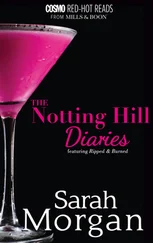Sarah Hall - The Electric Michelangelo
Здесь есть возможность читать онлайн «Sarah Hall - The Electric Michelangelo» весь текст электронной книги совершенно бесплатно (целиком полную версию без сокращений). В некоторых случаях можно слушать аудио, скачать через торрент в формате fb2 и присутствует краткое содержание. Год выпуска: 2010, Издательство: Faber and Faber, Жанр: Современная проза, на английском языке. Описание произведения, (предисловие) а так же отзывы посетителей доступны на портале библиотеки ЛибКат.
- Название:The Electric Michelangelo
- Автор:
- Издательство:Faber and Faber
- Жанр:
- Год:2010
- ISBN:нет данных
- Рейтинг книги:3 / 5. Голосов: 1
-
Избранное:Добавить в избранное
- Отзывы:
-
Ваша оценка:
- 60
- 1
- 2
- 3
- 4
- 5
The Electric Michelangelo: краткое содержание, описание и аннотация
Предлагаем к чтению аннотацию, описание, краткое содержание или предисловие (зависит от того, что написал сам автор книги «The Electric Michelangelo»). Если вы не нашли необходимую информацию о книге — напишите в комментариях, мы постараемся отыскать её.
The Electric Michelangelo — читать онлайн бесплатно полную книгу (весь текст) целиком
Ниже представлен текст книги, разбитый по страницам. Система сохранения места последней прочитанной страницы, позволяет с удобством читать онлайн бесплатно книгу «The Electric Michelangelo», без необходимости каждый раз заново искать на чём Вы остановились. Поставьте закладку, и сможете в любой момент перейти на страницу, на которой закончили чтение.
Интервал:
Закладка:
Sarah Hall
The Electric Michelangelo
For all our Reedas,
And all our Rileys
‘Good and bad, two ways
of moving about your death
by the grinding sea …’
Dylan ThomasPART I
Bloodlights

If the eyes could lie, his troubles might all be over. If the eyes were not such well-behaving creatures, that spent their time trying their best to convey the world and all its gore to him, good portions of life might not be so abysmal. This very moment, for instance, as he stood by the hotel window with a bucket in his hands listening to Mrs Baxter coughing her lungs up, was about to deteriorate into something nasty, he just knew it, thanks to the eyes and all their petty, nit-picking honesty. The trick of course was to not look down. The trick was to concentrate and pretend to be observing the view or counting seagulls on the sill outside. If he kept his eyes away from what he was carrying they would not go about their indiscriminating business, he would be spared the indelicacy of truth, and he would not get that nauseous feeling, his hands would not turn cold and clammy and the back of his tongue would not begin to pitch and roll.
He looked up and out to the horizon. The large, smeary bay window revealed a desolate summer scene. The tide was a long way out, further than he could see, so as far as anyone knew it was just gone for good and had left the town permanently inland. It took a lot of trust to believe the water would ever come back each day, all that distance, it seemed like an awful amount of labour for no good reason. The whole dirty, grey-shingled beach was now bare, except for one or two souls out for a stroll, and one or two hardy sunbathers, in their two-shilling-hire deck-chairs, determined to make the most of their annual holiday week away from the mills, the mines and the foundries of the north. A week to take in the bracing salty air and perhaps, if they were blessed, the sun would make a cheerful appearance and rid them of their pallor. A week to remove all the coal and metal dust and chaff and smoke from their lungs and to be a consolation for their perpetual poor health, the chest diseases they would eventually inherit and often die from, the shoddy eyesight, swollen arthritic fingers, allergies, calluses, deafness, all the squalid cousins of their trade. One way to tell you were in this town, should you ever forget where you were, should you ever go mad and begin not to recognize the obvious scenery, the hotels, the choppy water, the cheap tea rooms, pie and pea restaurants, fish and chip kiosks, the amusement arcades, and the dancehalls on the piers, one way to verify your location was to watch the way visitors breathed. There was method to it. Deliberation. They put effort into it. Their chests rose and fell like furnace bellows. So as to make the most of whatever they could snort down into them.
There was a wet cough to the left of him, prolonged, meaty, ploughing through phlegm, he felt the enamel basin being tugged from his hands and then there was the sound of spitting and throat clearing. And then another cough, not as busy as the last, but thorough. His eyes flickered, involuntarily. Do not look down, he thought. He sighed and stared outside. The trick was to concentrate and pretend he was looking out to sea for herring boats and trawlers returning from their 150-mile search, pretend his father might come in on one of them, seven years late and not dead after all, wouldn’t that be a jolly thing, even though the sea was empty of boats and ebbing just now. The vessels were presently trapped outside the great bay until the tide came back in. Odd patches of dull shining water rested on the sand and shingle, barely enough to paddle through, let alone return an absent father.
Outside the sky was solidifying, he noticed, as if the windowpane had someone’s breath on it. A white horse was heading west across the sands with three small figures next to her, the guide had taken the blanket off the mare, the better that she be seen. As if she was a beacon. Coniston Old Man was slipping behind low cloud across the bay as the first trails of mist moved in off the Irish Sea, always the first of the Lake District fells to lose its summit to the weather. So the guide was right to uncover the horse, something was moving in fast and soon would blanket the beach and make it impossible to take direction, unless you knew the route, which few did in those thick conditions. Then you’d be stranded and at the mercy of the notorious tide.
— Grey old day, isn’t it, luvvie? Not very pleasant for June.
— It is, Mrs Baxter. There’s a haar coming in. Shall I be taking this now or will you need it again shortly do you think?
— No, I feel a bit better, now I’m cleared out, you shan’t be depriving me. And if I need to go again I’ll try to make it to the wash room. You’re a very good boy, Cyril Parks, your mammy should be proud to have a pet like you helping her around here. Well spoken and the manners of a prince. Is it a little chilly to have the sash open today, luvvie?
The woman watched him from her chair. She resembled a piece of boiled pork, or blanched cloth, with all her colour removed. Just her mouth remained vivid, saturated by brightness, garish against her skin, and like the inside of a fruit when she spoke, red-ruined, glistening and damp.
— Yes, Mrs Baxter, I’m afraid it is. Would you like some potted shrimp? Mam made it fresh today.
— Oh yes. That would be lovely. I do so enjoy her potted shrimp, just a touch of nutmeg, not too heavy handed, salt and pepper, and never anything but fresh butter. Some of these places here leave their butter out of the pantry to spoil and use it all the same, I can tell. I’ve a delicate palate that way and can spot a cheap tray. Nothing worse than rancid butter, is there, luvvie? You tell your mammy I’m of the opinion that hers is the best potted shrimp in Morecambe. I won’t mind telling her myself next time I see her. And is it her?
— Is what her, Mrs Baxter?
— You know. Is it her that King George gets his potted shrimp from? I know he has it sent specially to him from Morecambe Bay. I read it in the papers, that he’s very partial to it and has it sent to him from a mystery person, a secret source. Would she be that mystery person? Because now that wouldn’t surprise me, wouldn’t surprise me in the least, I do so enjoy her potted shrimp.
— No, it’s not her, Mrs Baxter.
He shook his head and picked up the basin. The trick was not to look down, to think of anything else other than that which was in his hands, but he always did look. He was self-torturing that way. He had eyes for the grotesque things of life, though in all fairness, given the current situation, he was provided ample opportunity to indulge his morbid curiosity. His mother said that human eyes saw no more nor less than the human brain commanded them to, a glass half empty or a glass half full, the Lord’s leftovers or Satan’s finest dining. In which case, he feared, he tumbled headlong into the realm of pessimistic and suspicious divination. Which, furthermore, left him swinging in a rather grave and hazardous position, influenced not just by the fair and graceful winds of heaven, but by a forked-tongued, red-hoofed, south-to-north blown breeze.

The consumptives in his mother’s hotel coughed up blood into their basins and handkerchiefs hourly. They did it earnestly, guiltily, as if each time fulfilling a pact with the Devil himself that in the matter of their failing health there would be those intolerable moments when the undersigned must bring up their monstrous, viscous, bloody end of the bargain, involving immeasurable discomfort on their behalf, for the Devil had his humorous perversions after all, before they were allowed future reprieve and life.
Читать дальшеИнтервал:
Закладка:
Похожие книги на «The Electric Michelangelo»
Представляем Вашему вниманию похожие книги на «The Electric Michelangelo» списком для выбора. Мы отобрали схожую по названию и смыслу литературу в надежде предоставить читателям больше вариантов отыскать новые, интересные, ещё непрочитанные произведения.
Обсуждение, отзывы о книге «The Electric Michelangelo» и просто собственные мнения читателей. Оставьте ваши комментарии, напишите, что Вы думаете о произведении, его смысле или главных героях. Укажите что конкретно понравилось, а что нет, и почему Вы так считаете.












